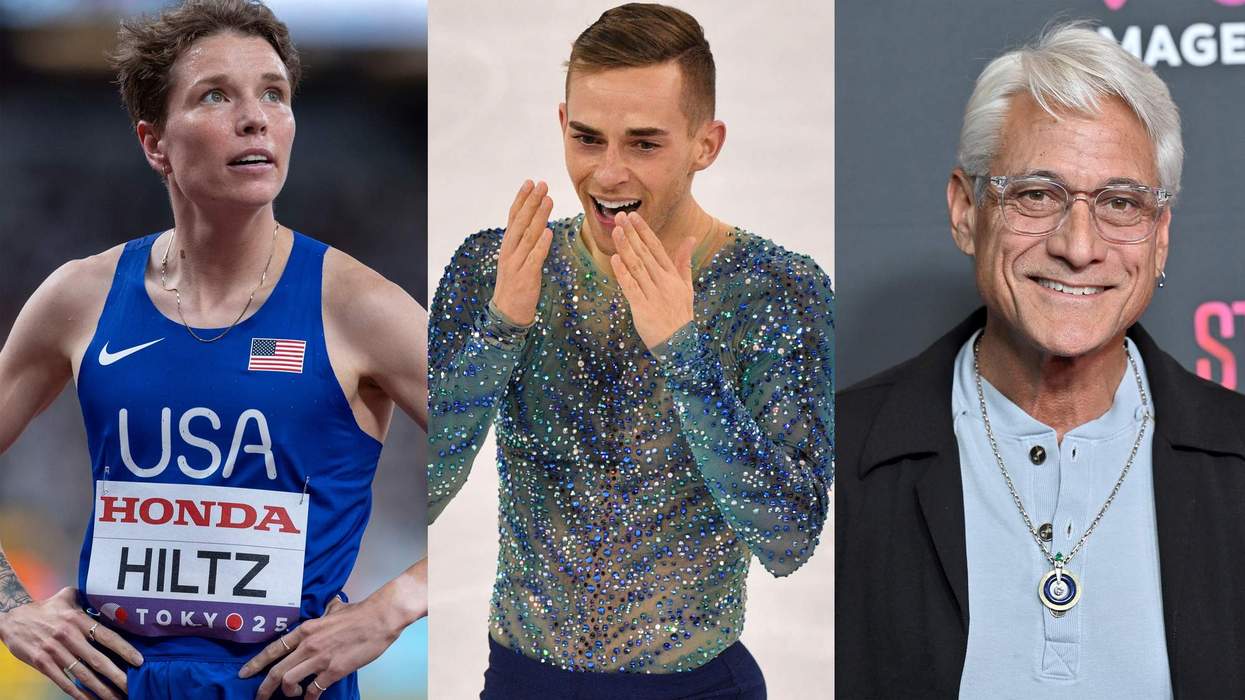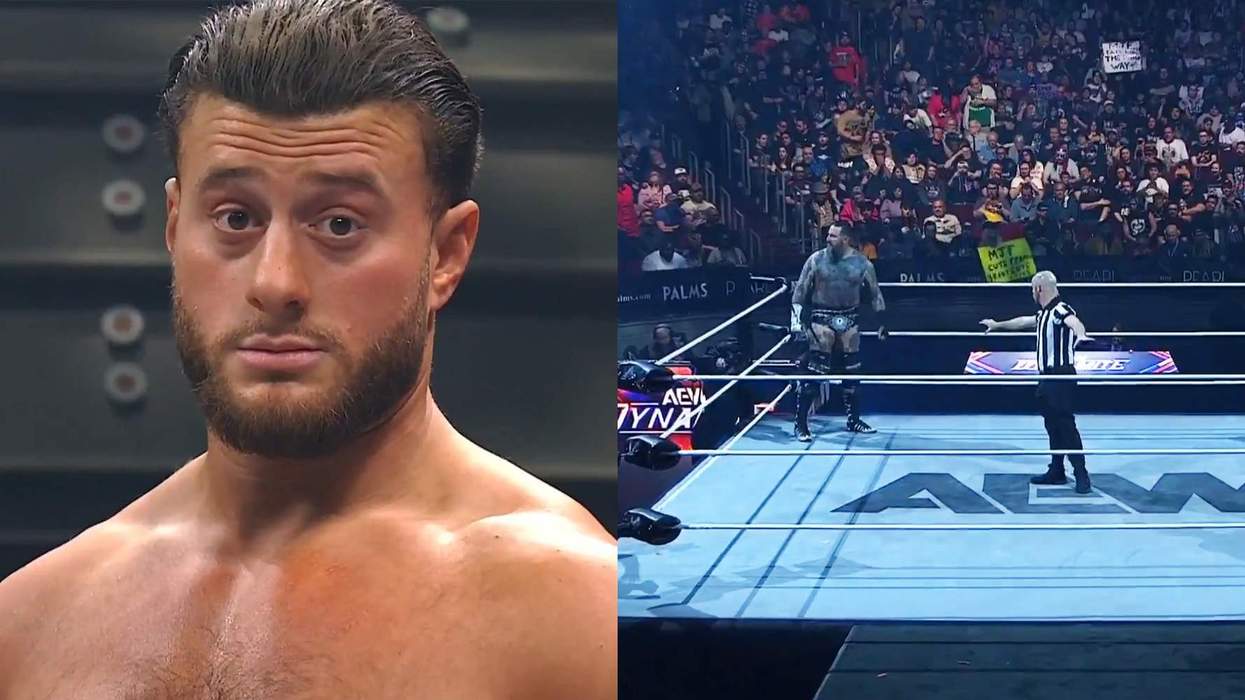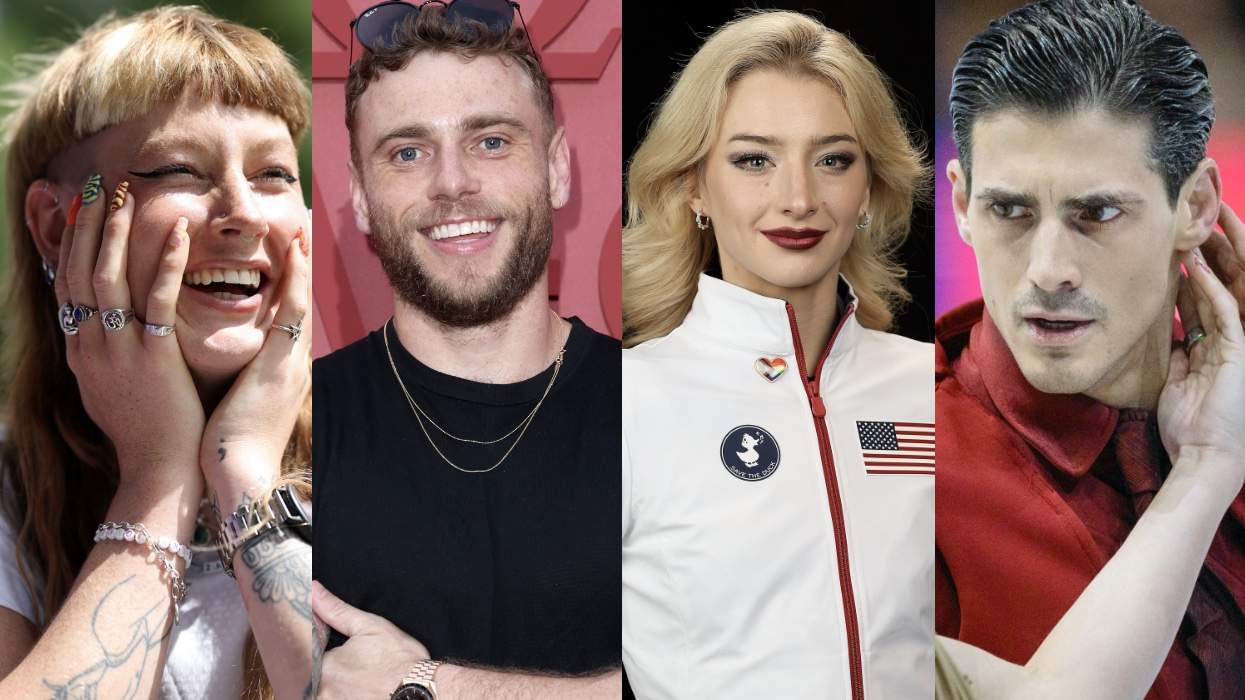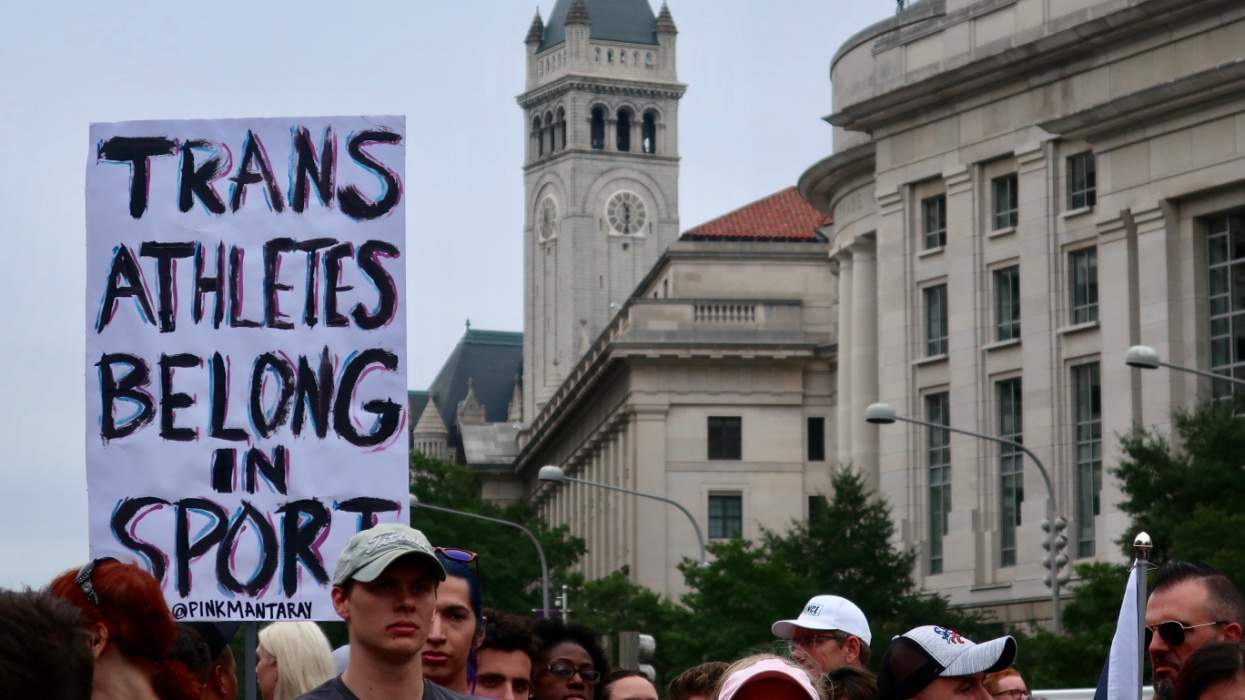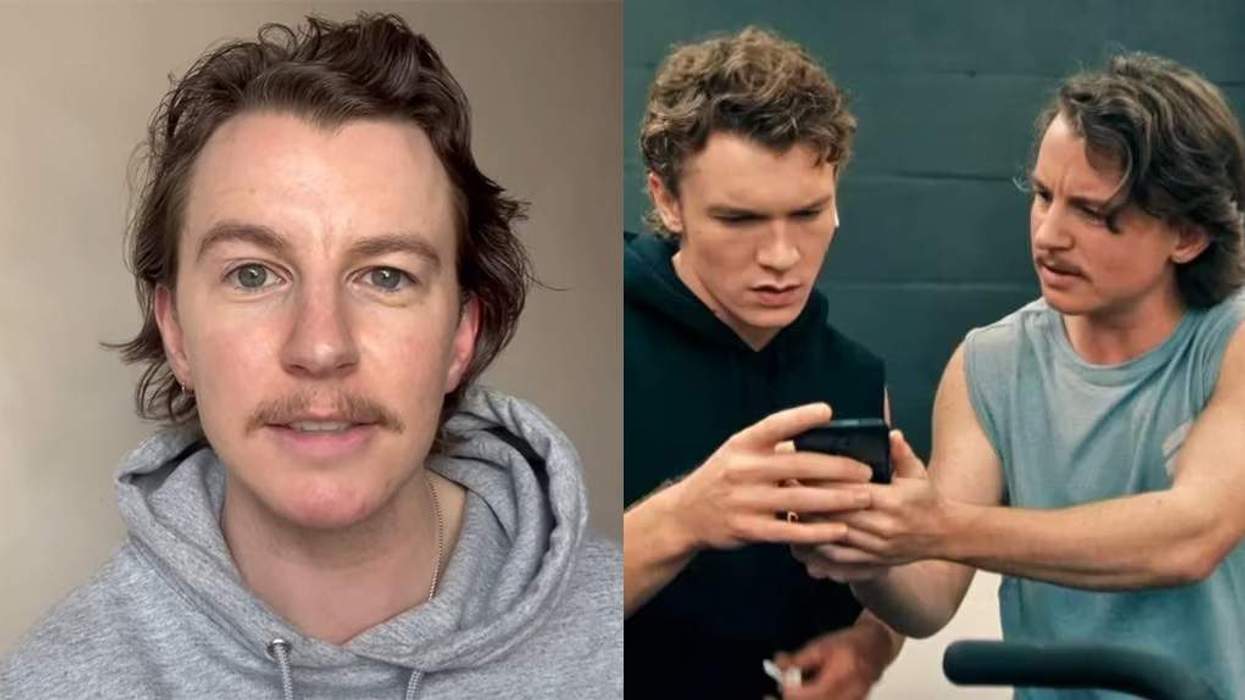Dean Koga knows it could have been worse -- a lot worse, more serious, more pain and suffering, more blood, more people injured, maybe even fatalities. He was, it turns out, the only one injured on July 28 in Copenhagen during a hate-crime attack at the 2009 World Outgames, even though the scene of the crime -- the newly renovated Osterbro Stadium, with its beautiful eight-lane track -- was filled with hundreds of competitors and fans.
Koga, 58, a records supervisor at a law firm in Seattle, was participating in numerous track and field events at the Outgames, just as he had at the 2006 World Outgames in Montreal and at four past Gay Games (Sydney, Amsterdam, Vancouver, and New York City). He is a member of the Seattle Front Runners, the predominantly gay running club that brought more than 30 members to Denmark for the biggest LGBT sporting event of 2009. His partner of 30 years, Curt Johnson, was watching, ready to cheer.
Instead, as Koga was set to run the first leg of the 4x200-meter relay race, tragedy struck: A lone Danish male, age 31, launched aerial attacks into the stadium. Some reports say they were just firecrackers; some say they were a lot more powerful. He ultimately sent three "bombs" into the stadium before he was apprehended; the assailant was prepared to launch up to nine.
"It will be with me for the rest of my life," Koga told The Advocate . "And it will be on the minds of other people too. It is unfortunate that something like that would happen during what was supposed to be a celebration, friendly competition, and a peaceful event. I didn't think [such a hate crime] would ever happen [at an LGBT sporting event], but I guess that's reality in the world we live in. Things like that happen because there are crazy people everywhere. This [attack] shouldn't reflect [negatively] on the people of Copenhagen, because they were wonderful, very nice. It's just unfortunate that you have one person like this, trying to disrupt the event like he did, especially with the intent of what it was."
Advocate.com:Tell me what happened as you prepared in Lane 3 of the staggered-start race?Dean Koga: Well, the fact it was a staggered start was very fortunate, because no one else was in the proximity of the two devices [that went off] except me. [The starter] had just called everyone to their marks, and then immediately there was an explosion. I just thought the starter had misfired the gun because that sometimes happens. When I turned around, I saw the device and could still see the glow where the fuse was. So I started running toward the infield and there was another one in front of me, which exploded, and that's the one that hit my hand.
You were hit running from your starting position into the infield of the track. What if you had instead stayed put? It might have hit me in the face. It might have been worse. The second one landed in front of me. So, had I still been facing forward, the device would have come the direction of my face. I was not sure what was happening. I just heard people say "Run!" There were several people on the sideline who could see the devices fly over [a wall] onto the track; I couldn't.
When it hit your hand, what did you think? I knew that I had been hit because I felt the pain, looked, and saw my hand was swelling up and blood was all over. My first thought was, I wanted to just wrap my hand and still run the relay, but there was too much blood
What did you think was happening at this point? I was not sure. I saw the device and thought it was some type of pipe bomb; it was shiny and looked like a tube. I knew it was some kind of explosive device, but I didn't know if there were more to come or what was going to happen.
When you reached the infield of the track, that's where you were attended to, right? Yes. The first aid was there very quickly. They had me lay down because they were going to remove [the shrapnel] from my skin, but it was underneath and [the first-aid attendant] couldn't really tell what it was. So they called an ambulance.
At this point, while being attended to, did you know what was really happening? Were there more explosions? When I was in the hospital or being driven to the hospital, from what I understand, that's when the next explosion hit. And that's when [the attacker] was chased and caught by volunteers and a plain-clothed policeman.
What's going through your mind at this point? I knew it was just a hand injury, and yet it could have been a lot more serious. I was very calm, very alert throughout, never in shock. But I also was puzzled; I didn't know who had done this.
You were very fortunate, knowing how tragic it could have been. I was lucky it was between my small finger and my ring finger, so it didn't cut any nerves or anything like that. No one else got injured. I felt very lucky; it could have hit me in the leg; it could have severed an artery; it could have hit me in the face; it could have hit me or anyone in the eye. I was very fortunate it was not very serious.
When you left the hospital at about 7:30 p.m., what were you thinking? I just wanted to get back to the hotel, see my teammates, reassure them and my coach that everything was OK, that it was not very serious, that I still was going to compete. After the explosion I really wanted to run, because otherwise the rest of the team would have to forfeit. Fortunately, they were able to find a replacement and were able to run.
What was Tuesday night like for you? I had a lot of pain in my hand, and I was taking antibiotics. Curt and I actually had to take the train downtown because there was only one 24-hour pharmacy, so we had to find it.
On July 29, about 24 hours after the attack, you were back on the track. And you didn't just compete -- you won a gold medal. What did that mean to you? What did that say? I wanted to go out there and compete, do as well as I could. I just wanted people to know that it was not going to deter me from competing, participating. Plus, I wanted to be there to support my teammates; I wanted to support them in all of their events and races.
As you now reflect back on Outgames, what are your feelings? The Tuesday [attack] was just a big distraction, for me and the rest of the team. But we still performed great. As a team we won over 100 medals.
Do you know the accused attacker? Have you met him? No.
If you met him, what would you say to him? I'm glad I didn't. They told me that there was the possibility that I would have to go to court before I left, and that left me very restless and I didn't sleep very well with the thought of having to come face-to-face with the person.
So if you had met him, what would you have said? I don't think there's much you can say to a person like that. You couldn't ask him "Why?" because his intent clearly was hate; he either wanted to cause harm or just disrupt the whole event.
You don't sound bitter or angry at all. I think if the injury was worse, I would be very angry. But there's not much you can do to change people like that. I'd like to think that the Outgames and the Gay Games are very positive [events] and that this was just an isolated incident, hopefully.
You've said you don't plan on attending the 2010 Gay Games, correct? That is correct. Our coach is taking a year off, so I think a lot of team members are not going to Cologne for that reason.
What's been the response since you've returned to the United States? Amazing. The outpouring of support from people from around the world, literally, has been incredible.
Perhaps a mini celebrity? I was amazed about how quickly people found out, but that's because of the age [of technology] that we now live in, thanks to the Internet.
What would you say to the Outgames organizers? I think they did the best they could to make [the track competition] and the event as a whole safe.
What kind of response have you gotten since returning to work? All of the people in my office had heard about it and all were genuinely concerned. It's really been overwhelming and kind of surprising that an overseas event like that was in the news here in America.





